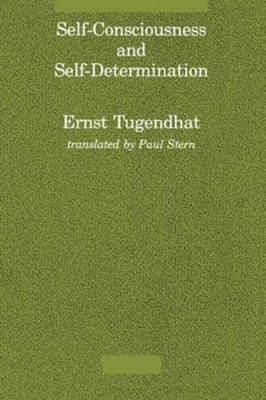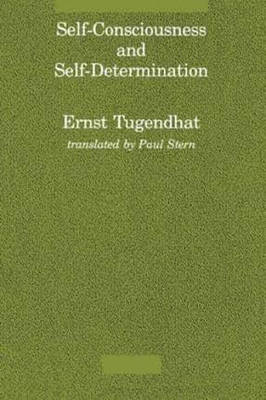
- Retrait gratuit dans votre magasin Club
- 7.000.000 titres dans notre catalogue
- Payer en toute sécurité
- Toujours un magasin près de chez vous
- Retrait gratuit dans votre magasin Club
- 7.000.0000 titres dans notre catalogue
- Payer en toute sécurité
- Toujours un magasin près de chez vous
Description
This book seeks to clarify the precise structure of self-consciousness and self-determination and elucidates their significance for our philosophical understanding of self-knowledge and human agency.The analysis challenges traditional models of theoretical self-knowledge and practical self-relation and elaborates an account of rationally grounded responsibility that jointly fulfills the demands of autonomy and authenticity.Tugendhat's study is a unique synthesis of the contemporary Anglo-American philosophical approach with an abiding concern for classical philosophical problems. It brings the methods of linguistic analysis to bear on such epistemological, moral, and metaphysical issues as the meaning and interconnections of self-knowledge, ego identity, rational self-understanding, and freedom of the will. In this context, the views of Wittgenstein, Heidegger, Mead, and Hegel are searchingly examined. The philosophical testimony of Kierkegaard, Freud, Habermas, and others is also presented and weighed. Self-Consciousness and Self-Determination is based on a series of lectures given at Heidelberg.
The book is included in the series Studies in Contemporary German Social Thought, edited by Thomas McCarthy.
Spécifications
Parties prenantes
- Auteur(s) :
- Traducteur(s):
- Editeur:
Contenu
- Nombre de pages :
- 368
- Langue:
- Anglais
- Collection :
Caractéristiques
- EAN:
- 9780262700382
- Date de parution :
- 07-09-89
- Format:
- Livre broché
- Format numérique:
- Trade paperback (VS)
- Dimensions :
- 150 mm x 228 mm
- Poids :
- 544 g

Les avis
Nous publions uniquement les avis qui respectent les conditions requises. Consultez nos conditions pour les avis.






